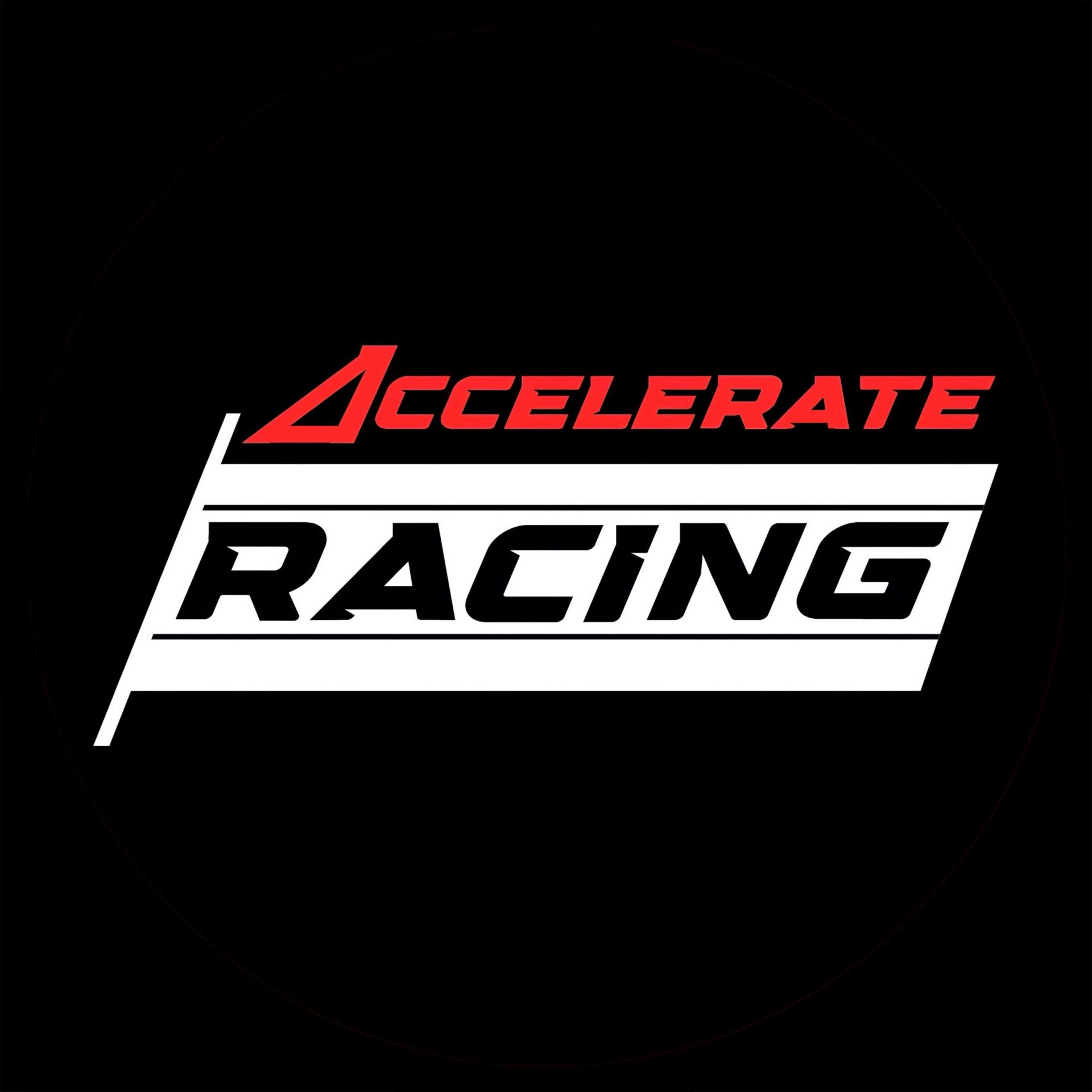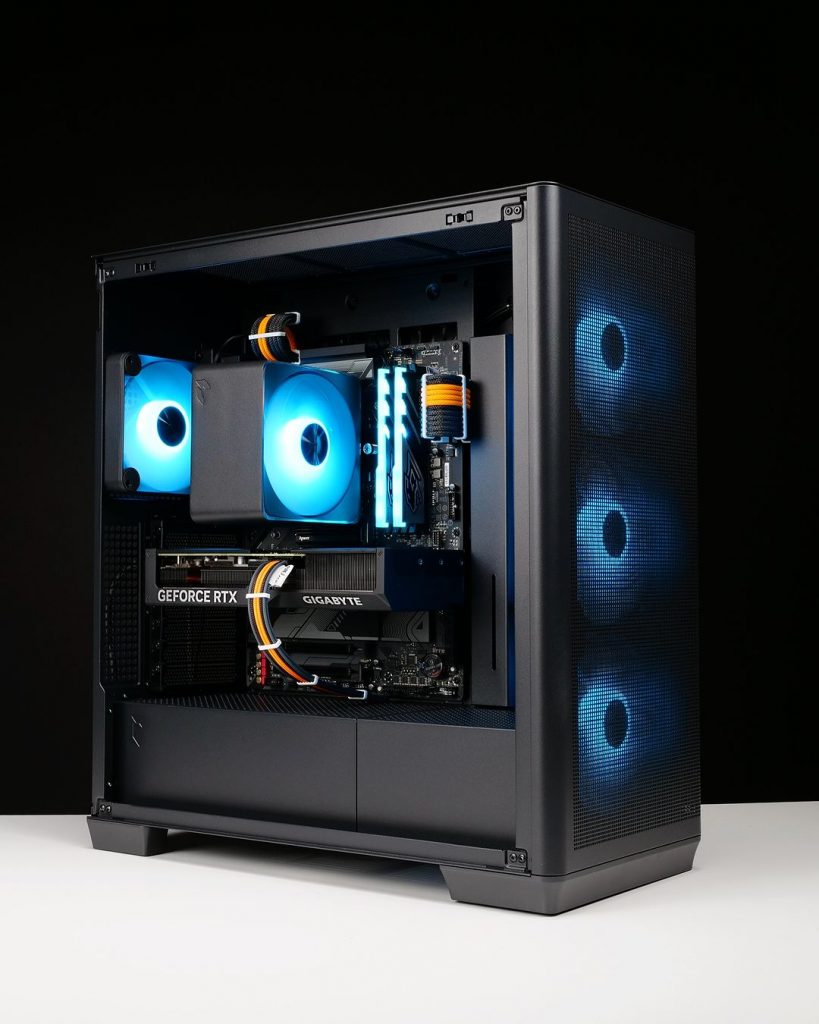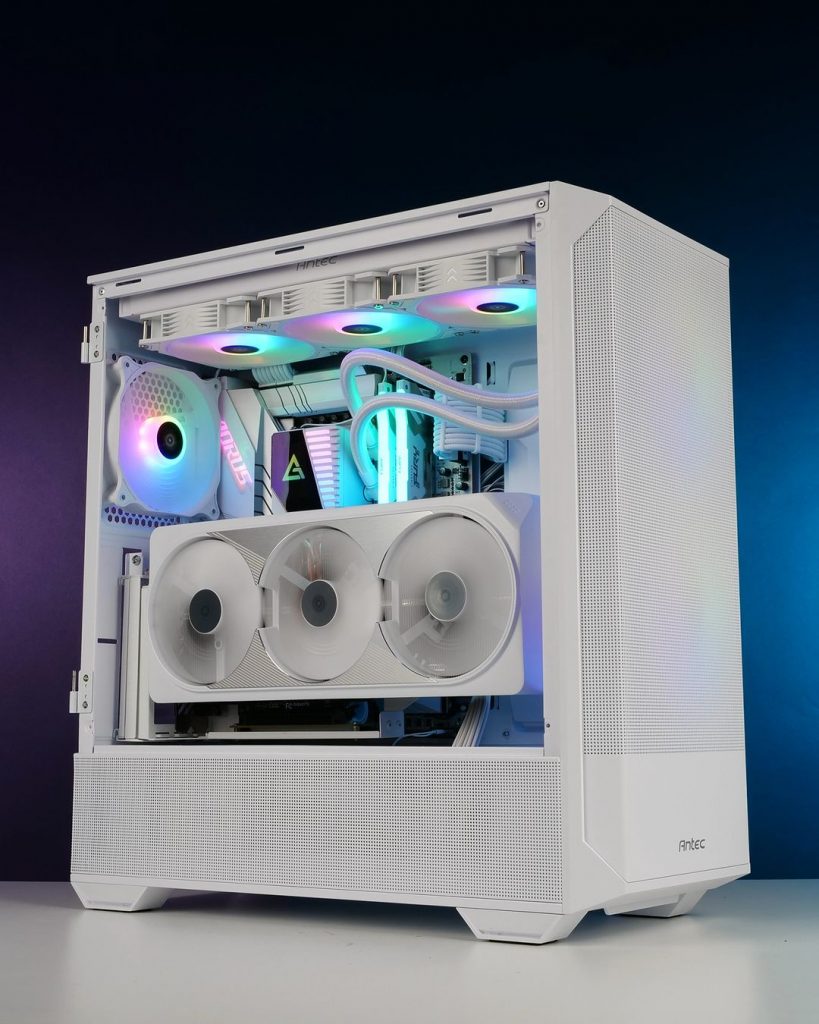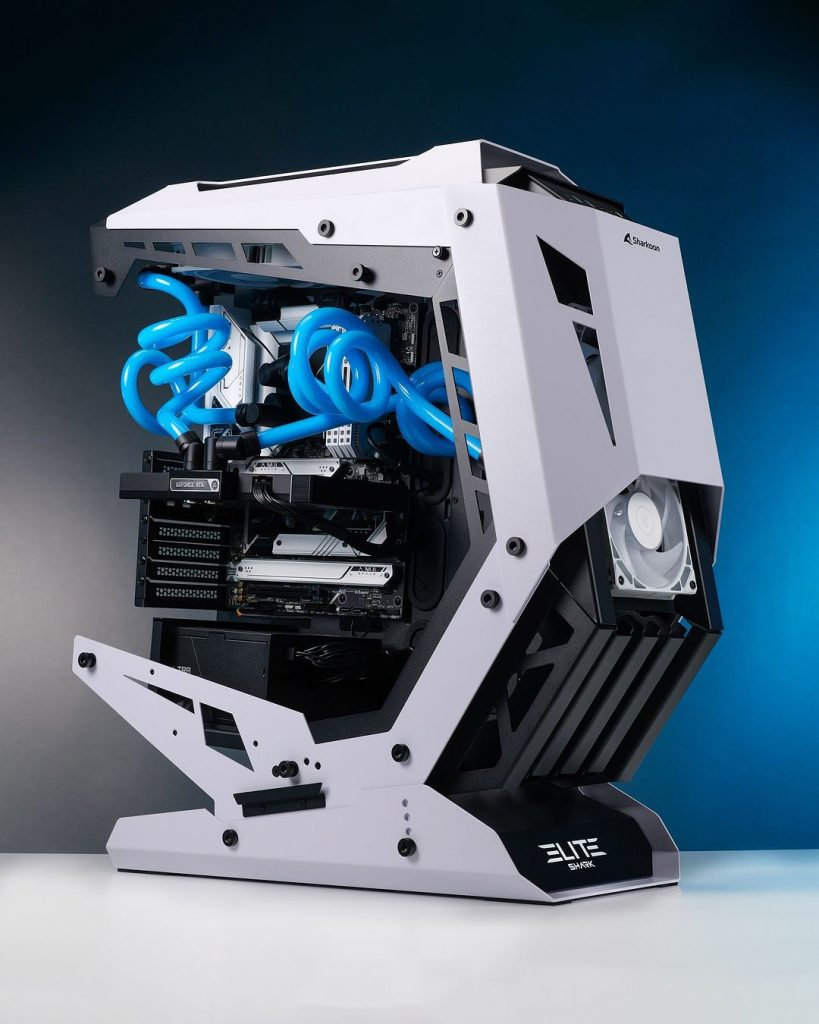When building a PC, one of the most crucial decisions you’ll make is choosing the right cooling system for your CPU. It’s vital to keep your processor from overheating, as that can lead to crashes, performance throttling, and even permanent damage. Three main options exist for CPU cooling: air cooling, AIO (all-in-one) liquid cooling, and custom loop cooling. Each has its own strengths and weaknesses, and the best choice for you will depend on your needs and budget. CPU cooling is extremely important, as an overheating processor can cause many issues.
Air CPU Cooling
Air cooling is the most common and traditional method for CPU cooling. It uses a large heatsink made of metal fins, along with one or more fans, to dissipate heat away from the processor. Here’s a breakdown of air cooling’s pros and cons:
Pros:
- Simple and affordable: Air coolers are generally the cheapest option. They’re easy to install and require minimal maintenance.
- Reliable: Air coolers have a proven track record of reliability and longevity.
- Quiet: Many air coolers operate very silently, especially at lower workloads.
- Wide compatibility: Air coolers fit in most PC cases and are compatible with a wide range of motherboards.
Cons:
- Bulkier footprint: Large air coolers can take up significant space inside your case, potentially blocking RAM slots or hindering airflow.
- Cooling performance: While effective for most users, air coolers might struggle to keep high-end overclocked CPUs cool under heavy loads.
- Limited aesthetics: Air coolers, while functional, don’t offer the same level of visual customization as liquid cooling solutions.
AIO Liquid CPU Cooling
AIO (all-in-one) liquid coolers offer a balance between air cooling and custom loops. They are essentially pre-filled, closed-loop liquid cooling systems. Here’s what you need to know:
Pros:
- Superior cooling performance: AIOs generally outperform air coolers in terms of thermal management, making them ideal for overclocking or high-performance builds.
- Improved aesthetics: AIOs often have integrated RGB lighting and a sleeker look compared to air coolers.
- More case compatibility: While larger radiators require space, AIOs generally offer more flexibility in terms of case compatibility compared to bulky air coolers.
Cons:
- Cost: AIOs are more expensive than air coolers.
- Complexity: Installation can be trickier than air coolers, requiring proper radiator placement and fan orientation.
- Maintenance: While minimal, AIOs may require occasional topping up of coolant or pump replacement after several years.
- Limited upgradeability: You’re stuck with the pre-configured radiator size and tubing length.
Custom Loop CPU Cooling
Custom loop cooling offers the absolute best cooling performance, but at a significant cost and complexity. This involves building your own liquid cooling system from scratch, with components like radiators, pumps, reservoirs, fittings, and tubing.
Pros:
- Unmatched cooling: Achieve the absolute lowest temperatures for extreme overclocking or pushing the limits of high-end hardware.
- Ultimate customization: Complete control over every aspect of the loop, allowing for unique aesthetics and personalized cooling configurations.
Cons:
- Price: Custom loops are by far the most expensive cooling option.
- Difficulty: Building and maintaining a custom loop requires significant technical expertise and troubleshooting skills. Leaks can damage expensive components.
- Maintenance: Regular maintenance is required, including topping up coolant, cleaning the loop, and monitoring pump performance.
- Case compatibility: Requires a case with ample space for radiators, reservoirs, and tubing.
Choosing the Right CPU Cooling Solution
Here are some key factors to consider when making your decision:
- Budget: Air coolers are the most budget-friendly option, while custom loops are the most expensive. AIOs fall somewhere in between.
- Performance needs: For basic tasks and moderate workloads, a good air cooler will suffice. For overclocking or high-performance builds, an AIO or custom loop might be necessary.
- Aesthetics: If visual appeal is important, AIOs and custom loops offer more customization options compared to air coolers.
- Technical expertise: Air coolers are the easiest to install and maintain. Custom loops require the most technical knowledge and troubleshooting skills.
- Case size: Make sure your chosen cooling solution fits comfortably within your case.
Conclusion
There’s no one-size-fits-all answer to CPU cooling. Air coolers offer a simple, reliable, and affordable solution for most users. AIOs provide a good balance between performance and aesthetics






